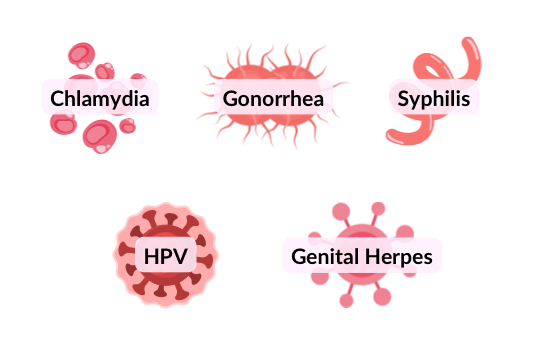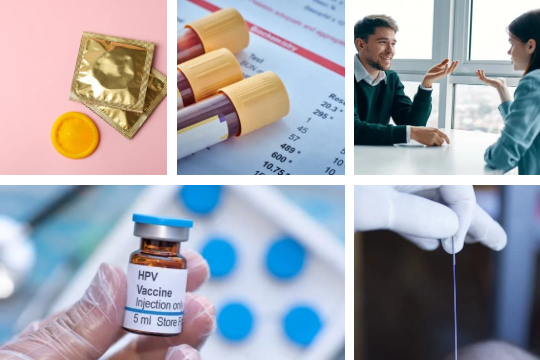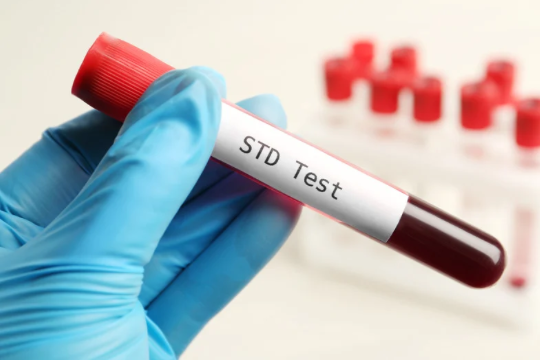Sexually transmitted infections (STIs) are a significant public health concern, with more than 2.5 million combined cases of chlamydia, gonorrhea, and syphilis reported in the U.S. in 2022, according to the Centers for Disease Control and Prevention (CDC). Early detection and treatment are critical to reducing the long-term health impacts of these infections. This article provides an overview of common STIs, their symptoms, prevention strategies, and treatment options.
What Are STIs?
STIs are infections spread primarily through sexual contact, including vaginal, anal, and oral sex. They are caused by bacteria, viruses, or parasites. While many STIs can be treated or managed, untreated infections may lead to severe health complications, including infertility and an increased risk of HIV transmission.
Common Types of STIs

1. Chlamydia
- Cause: Bacteria (Chlamydia trachomatis).
- Symptoms: Often asymptomatic; when present, symptoms include abnormal vaginal discharge, pain during urination, or pelvic pain.
2. Gonorrhea
- Cause: Bacteria (Neisseria gonorrhoeae).
- Symptoms: Vaginal discharge, painful urination, or bleeding between periods.
3. Syphilis
- Cause: Bacteria (Treponema pallidum).
- Symptoms: Painless sores in the early stages, followed by rashes, fever, or swollen lymph nodes if untreated.
4. Human Papillomavirus (HPV)
- Cause: Virus (HPV).
- Symptoms: Often asymptomatic but may cause genital warts or lead to cervical cancer.
5. Genital Herpes
- Cause: Virus (HSV-1 or HSV-2).
- Symptoms: Painful blisters or sores around the genital area.
Symptoms of STIs
Many STIs have mild or no symptoms, making routine testing essential. When symptoms do occur, they may include:
- Unusual discharge from the vagina.
- Painful urination.
- Genital sores or blisters.
- Itching, redness, or irritation in the genital area.
- Pain during intercourse.
- Lower abdominal or pelvic pain.
If you experience any of these symptoms, consult a healthcare provider promptly.
Risk Factors for STIs
Anyone sexually active can contract an STI, but certain factors increase the risk:
- Unprotected Sex: Not using condoms or dental dams.
- Multiple Partners: Increased likelihood of exposure.
- Previous STIs: History of infections can elevate risk.
- Substance Use: Alcohol or drugs may impair judgment and lead to unsafe practices.
- Age: Young people aged 15-24 are disproportionately affected.
Prevention Strategies

Preventing STIs requires proactive steps:
- Consistent Condom Use: Proper use of condoms can reduce the risk of most STIs.
- Routine Testing: Regular STI screenings can catch infections early, even without symptoms.
- Open Communication: Discuss sexual health and testing history with partners.
- Vaccination: HPV and hepatitis B vaccines offer protection against specific infections.
- Avoid Sharing Needles: Prevent transmission of bloodborne infections like HIV and hepatitis.
Treatment Options
STI treatment depends on the type of infection:
- Bacterial STIs (Chlamydia, Gonorrhea, Syphilis): Treatable with antibiotics. Early treatment prevents complications.
- Viral STIs (HPV, Herpes, HIV): While not curable, antiviral medications can manage symptoms and reduce transmission risk.
- Partner Notification: Informing sexual partners ensures they also receive testing and treatment.
Explore the importance of early intervention and testing on our Pap Smears & HPV Testing Blog
Complications of Untreated STIs
Untreated STIs can lead to severe health issues, including:
- Pelvic inflammatory disease (PID).
- Infertility or ectopic pregnancy.
- Increased risk of HIV infection.
- Chronic pain or systemic infections (syphilis).
Routine testing and timely treatment are vital for preventing these outcomes.
When to Seek Medical Advice
If you suspect exposure to an STI or notice symptoms, don’t delay seeking care. At the Women’s Center of Athens, we offer confidential testing and treatment to safeguard your health.


